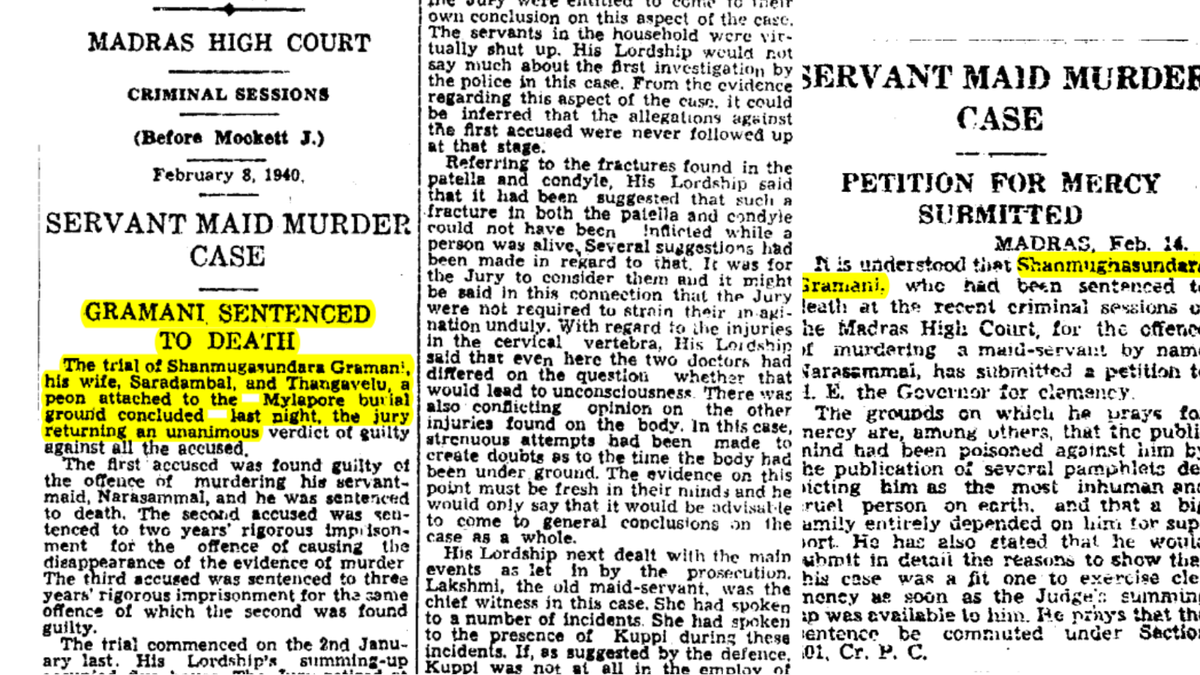Now Reading: Chennai Toddy Shop Owner Sentenced to Death for Cook’s 1940 Murder
-
01
Chennai Toddy Shop Owner Sentenced to Death for Cook’s 1940 Murder
Chennai Toddy Shop Owner Sentenced to Death for Cook’s 1940 Murder

Swift Summary
- Location & Background: Shanmugasundara Gramani, infamous for violence and criminal activities, lived on Irusappa Gramani Street in Triplicane, Chennai. He gained notoriety after threatening picketers outside his toddy shop with a gun in 1938.
- Incident: On April 2, 1939, domestic worker narasammal was brutally beaten and tortured by Shanmugasundara over a minor issue related to household duties. She succumbed to injuries the following day.
- Employment Conditions: Narasammal worked as a cook at ₹10 per month but faced harsh treatment alongside other workers subjected to physical abuse and oppressive practices.
- Discovery of Murder: The murder came to light weeks later when details were revealed through one of the workers visiting another residence. The body had been buried illegally after being left rotting for days.
- Trial & Verdict:
– Shanmugasundara was sentenced to death for murder following witness testimonies confirming the crime despite initial contradictions due to fear of retaliation.- His wife saradambal was sentenced to two years of rigorous imprisonment for aiding in disposing evidence.
– Thangavelu (a burial ground worker) received three years imprisonment for facilitating illegal burial procedures.
- Clemency Petition Rejected: Shanmugasundara’s appeal citing financial dependence from family and alleged public bias failed; he was executed by hanging in July 1940.
Indian Opinion Analysis
The case highlights systemic issues surrounding caste-based exploitation and maltreatment within domestic labor households during pre-Independence India. Through witness accounts, it is evident that fear obstructed initial justice processes-a recurring challenge then as now. Furthermore, severe power imbalances fostered an environment where vulnerable members of society were subjected not onyl to economic hardship but often fatal violence without immediate accountability.
The swift rejection of clemency despite claims regarding biased public opinion suggests strong institutional resolve against heinous crimes during colonial governance-though safeguards ensuring unbiased trials amid societal prejudices remain essential even today.
This ancient account serves as both a cautionary tale regarding unchecked individual dominance within local systems and underlines the importance of better regulatory oversight over labor conditions across socio-economic strata-a lesson that continues resonating beyond decades. It is imperative that such histories are reflected upon constructively so similar tragedies are prevented in modern contexts.

























